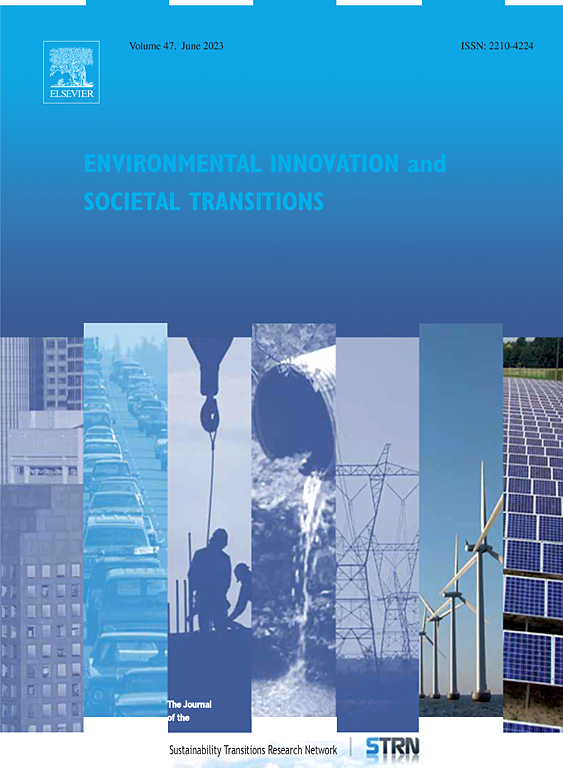Citizen participation in food systems transitions: How inclusive should it be?
IF 5.7
2区 经济学
Q1 ENVIRONMENTAL SCIENCES
Environmental Innovation and Societal Transitions
Pub Date : 2025-03-20
DOI:10.1016/j.eist.2025.100986
引用次数: 0
Abstract
Within food systems transitions debates, various arguments are given for inclusive citizen participation in decision-making processes. This article critically discusses these arguments through an integrative literature study. We link scientific papers on transition studies, public participation, inclusivity, and food system research to discuss the need for and relevance of inclusive citizen participation in food systems transitions. The article distinguishes five arguments for the inclusion of citizens in decision-making processes: normative, substantive, legitimate, social learning, and empowerment arguments. These arguments are connected to various dynamics relevant to a transition process. This study shows that there is a fundamental tension between food systems transition thinking and inclusive participation. This tension plays out differently in different dynamics of food systems transitions. Therefore, we propose that the most meaningful form of inclusive citizen participation differs for each dynamic of food systems transitions.
粮食系统转型中的公民参与:应具有多大的包容性?
在粮食系统转型的辩论中,提出了各种关于包容性公民参与决策过程的论点。本文通过综合文献研究对这些观点进行批判性的讨论。我们将有关转型研究、公众参与、包容性和粮食系统研究的科学论文联系起来,讨论包容性公民参与粮食系统转型的必要性和相关性。本文区分了将公民纳入决策过程的五种论点:规范性、实质性、合法性、社会学习和赋权论点。这些论点与过渡过程相关的各种动态有关。这项研究表明,在粮食系统转型思维和包容性参与之间存在着根本性的紧张关系。这种紧张关系在粮食系统转型的不同动态中表现不同。因此,我们提出,包容性公民参与的最有意义的形式对于粮食系统转型的每个动态都是不同的。
本文章由计算机程序翻译,如有差异,请以英文原文为准。
求助全文
约1分钟内获得全文
求助全文
来源期刊

Environmental Innovation and Societal Transitions
Energy-Renewable Energy, Sustainability and the Environment
CiteScore
13.60
自引率
19.40%
发文量
90
审稿时长
56 days
期刊介绍:
Environmental Innovation and Societal Transitions serves as a platform for reporting studies on innovations and socio-economic transitions aimed at fostering an environmentally sustainable economy, thereby addressing structural resource scarcity and environmental challenges, particularly those associated with fossil energy use and climate change. The journal focuses on various forms of innovation, including technological, organizational, economic, institutional, and political, as well as economy-wide and sectoral changes in areas such as energy, transport, agriculture, and water management. It endeavors to tackle complex questions concerning social, economic, behavioral-psychological, and political barriers and opportunities, along with their intricate interactions. With a multidisciplinary approach and methodological openness, the journal welcomes contributions from a wide array of disciplines within the social, environmental, and innovation sciences.
 求助内容:
求助内容: 应助结果提醒方式:
应助结果提醒方式:


